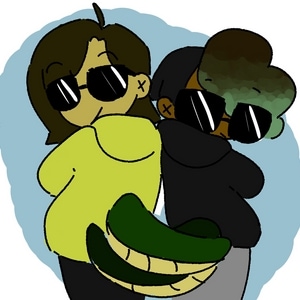I was dreaming that I was laying on a tropical beach surrounded by hula girls who were feeding me grapes and dancing the hoochie coochie when I realized those weren’t waves pounding on the shore, but my boss and landlord Essie pounding on my bedroom door.
“Ruben! Ruben Bernbaum wake up honey! You got to wake up and let me in,” shouted the husky voice from the other side of the door.
The last time this happened I had fallen on hard times - too much drinking, jazz and gambling in Madame Essie’s House of Jazz has put me on the outs with my white society friends and family. I lost my law practice and was living in the storeroom above Essie’s nightclub, hiding out from my creditors and picking up cash doing legal work for the black community. When Essie came knocking that fateful night, it put me on the road to riches and recovery. Essie was Savannah’s most impressive businesswoman. Her short, round 300-pound body and those shiny fingerwaves made her look more like a swollen Josephine Baker than a shrewd businesswoman. But Essie had turned a back alley juke joint into a thriving entertainment enterprise. In the time that elapsed Between the Roaring 20s, the Great Depression and the enterprising 1940s, her House of Jazz had become the South East Coast’s entertainment capital. Essie was a genius when it came to making money. She had gone to work as a maid for an old money broad named Lady Gladys during prohibition just to get access to large liquor shipments without being questioned. Lady Gladys, RJ Reynolds, JP Morgan, the Rockefellers the Pulitzers and all the East Coast robber barons were among Essie’s best customers. When Lady Gladys turned up dead, Essie wouldn’t let a little thing like murder get in the way of her wallet. She hired me to investigate and pin the old bird’s murder on her three good for nothing, money grubbing kids. In the end, enterprising Essie inherited the estate. She went from maid to lady of the manor. But Essie stayed true to her friends. She allowed all of Lady Gladys’ staff and me to take up residence in the manor. And each of us was given generous share of Essie’s new found wealth so we could start our own businesses. These days Essie spent most of her time expanding her full-length fur coat collection, chain smoking French cigarettes from a long holder and working to change her image from shady nightclub owner to respectable community leader.
Having a mansion full of misfits living with her wasn’t making the transition to respectability easy for her. Our high society white neighbors were appalled to have big Essie, and all of her questionable friends coming in and out the front door of Savannah’s largest and most celebrated mansion. With Lady Gladys dead and all of her heirs in prison for her murder, Essie and the rest of Gladys’ trusted staff was left to rule the house and spend the fortune. Essie rode around the black community in Lady Gladys’ Bentley. Chef Carl Bosier - my old gambling partner and former cook at the Woodville School for colored children - started a fine dining restaurant that served high society types from both the black and white communities. He had convinced them all that he had been trained in the best restaurants in France. But the only thing he could cook was dry ham sandwiches on cheap white bread. He used his charm and experience as a flim flam man to trick everyone into believing ham and cheese on white bread was the latest gourmet craze on the French Riviera. When he was Lady Gladys’ busybody butler, Antwan Dupree Jenkins was always immaculately dressed in a black tuxedo and white gloves. The six foot three, skinny as a rail butler wore his hair processed and slicked down. He looked like a cross between a penguin and an exclamation point. Since coming into Lady Gladys’ fortune Antwan had opened a high end haberdashery. The way he fussed and sashayed about was sickening, but everyone, black and white, put up with him in order to stay on the cutting edge of fashion. Then there was the grumpy old gardner Lucius Pinkney. He had had worked for Lady Gladys’ family since he was 10 and complained about it the entire time. He threatened to take his pocket knife to the throat of anyone who trampled Lady Gladys’ lawn. After it became his lawn, he became even more disagreeable. He grew exotic plants and sold them on the weekends at a large stand he set up in the City Market in downtown Savannah. Tourists actually paid extra money to be fussed at by the grumpy old gardener who couldn’t bear to part with his beloved plants for anything less than $10. But Pinkney’s favorite weekday past time was fussing at white folks who passed by the beautiful wrought iron gates of the mansion.
“This is my house now whitey,” he would shout as he waved his pocket knife like a dueling sword.
Despite our strange situation in the segregated South, things had become almost normal in the months since Lady Gladys died. We had grown accustom to the snubs from our old money Southern neighbors and the shaming from the Black Baptist Women’s Association. Neither group approved of our interracial living arrangements, our new found wealth or Essie’s booming nightclub business. On the other hand, Hollywood stars and New York Elite were coming down south in droves for the chance to be seen in Essie’s Club, eat sandwiches with chef, or be dressed by Antwan. The ultimate social victory on the 1940 party scene was to be invited to a late night soiree at the mansion and threatened by Luscious. The only one who was still just as broke and struggling to attract business was me. The Savannah Bar Association refused to appeal my disbarment so I could practice law again and it was rare that anyone had problems they needed a private investigator to solve. My phone never rang and it had been months since a potential client had come to my office. So I was shocked that night when a worried Essie came pounding on my bedroom door.
“What in the world can be so important that you wake me from my hula dancer dreams in the middle of the night,” I complained as I slowly made my way to the door.
“Ruben Bernbaum if you don’t let me in this instant I’m going to slap you from here to Honolulu,” Bessie bellowed.
Before I could get the door all the way open, Essie pushed her way passed me, plopped herself down at the mini-bar and poured herself a stiff drink.
“Put your detective hat on and get ready to do some serious detecting Rubie,” she said rubbing her temples as if she had a migraine. “We got some trouble. Big trouble at the club. Real big trouble.”
For the last six months Essie had been promoting a week-long appearance by the biggest jazz singer in the world - Dalia Blue. Dalia was a Savannah native. She grew up singing hymns in First African Baptist Church and Essie introduced her to jazz when she was a teen. She went from singing solos on Saturday nights at Essie’s to a featured performer in Louis Armstrong’s travelling band. She was just back from a tour of Europe and the filming of Hollywood’s first big budget musical starring an all-black cast. Dalia Blue was a huge international star. European royalty, movie moguls and the filthy rich were all in Savannah this week. They were spending big time money on show tickets, liquor, ham sandwiches and haberdash. Dozens of starry eyed performers were lined up at the mansion gates hoping to get a chance to audition and become Essie’s next big discovery. Essie was even getting some of the respectability she so desperately desired - Mayor Thomas Gamble had given her a key to the City for bringing in so many tourist dollars and Joseph T. Carter, Sr., Savannah’s black bank president and most prominent black citizen had invited her to lunch with the Black Businessmen’s Association and purchased front row seats for Dalia’s first show. It was beyond me how that could be a problem. The number one prude from the Black Baptist Women’s Association - Evelyn Taylor-Carter had formed an unprecedented alliance with the Downtown Neighborhood Association racists to protest the raucous riff-raff that was flooding the area, but Essie could easily handle them.
“You’ve got thousands of big money spenders falling at your feet. What could possibly go wrong?” I asked.
Essie grabbed me by my pajama collar and pulled me toward her like a rag doll until we were nose to nose. Her eyes were desperate and filled with tears.
“She’s gone!,” Essie cried. “Dalia Blue was kidnapped from the dressing room after last night’s performance. You gotta find her fast or I’m ruined.”











Comments (0)
See all